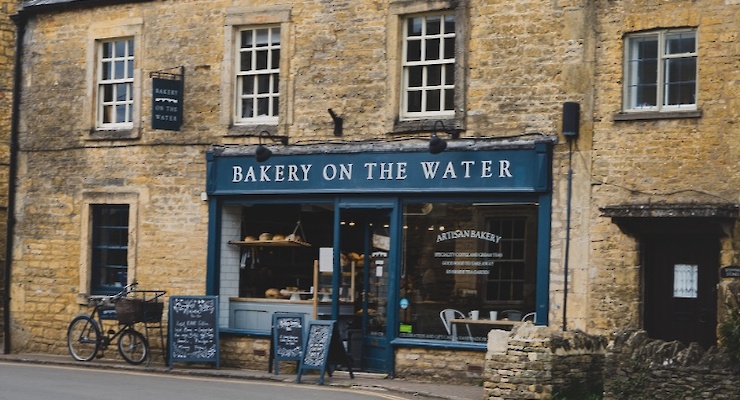


Mortgage Advisor & Director

Head of Bridging and Commercial

If you’re looking to buy a mixed-use premises, or diversify the use of a property to include both elements, you may be wondering what type of financing is best.
Here we’ll look at how to secure financing on a mixed-use property, and how Teito can help you to find the best semi-commercial mortgage deal.
What is a semi-commercial mortgage?
If you're looking to finance a mixed-use property, then neither a commercial mortgage nor a standard residential mortgage will work for you. Usually if a building has both a commercial and residential purpose, or you intend it to in the future, you'll need a semi-commercial mortgage.
Buildings are usually classed as either commercial, residential or mixed use depending on the percentage share of residential and commercial floorspace. Usually if a property is more than a 40/60 split of commercial and residential use, most lenders will consider it mixed use. For example, you’ll likely need a semi-commercial mortgage to buy a house with shop or any form of retail space attached.
However, keep in mind that different lenders define mixed-use based on their own criteria, so it’s best to speak to a mortgage broker with expertise in semi-commercial finance to find the most suitable lender and product for your precise scenario.

Connect with a semi-commercial mortgage specialist today
When would you need one?
The main determining factor of whether or not you need a semi-commercial mortgage is going to be the percentage split of the property. For example, if only a very small percentage of a commercial property is residential, you won’t always need a semi-commercial mortgage.
The percentage split is usually either based on the value of each element or in some cases, the square footage. Properties with separate entrances for different uses are generally valued higher than those with a shared entrance.
There are number of property types you can buy with a mixed use/semi commercial mortgage, such as:
- Pub with residential space above
- Block of apartments with ground-floor retail space
- Doctor or any form of medical or healthcare professional that has a surgery/treatment room attached to their personal home
- Bed and breakfast or guest house style property
- Farms
- Animal care services such as veterinary surgeries or kennels
Lending criteria
As with any other residential or commercial mortgage, lenders base your loan suitability on the risk involved in lending to you. Criteria varies between lenders and depending on the percentage split, and intended use of the property, but will usually include:
- Deposit - semi-commercial mortgage deposits usually require a minimum of 20%, however, it could be anything from 25-40%, depending on the risk and percentage of commercial use
- Personal/business finances - if your building is intended for both private residential and commercial use, lenders will want to see both personal and business finances, including your trading history and credit score
- Industry experience - most lenders will want to see evidence that you’ve owned or managed a similar business previously, so a detailed business plan and projected future income will be needed alongside your application
- Property specific criteria - the location and value of the property as well as any previous trading history for the commercial element if you’re buying an established business, such as a pub
How much could you borrow on a semi-commercial mortgage?

The loan size will be based on the level of risk and how much deposit you have, but typically you’ll be able to borrow as much as 80%LTV (loan to value) or in other words, 80% of the full value of the property you want to buy.
It may be possible to secure a loan of up to 100% if you provide a high value asset as security, either on top of or instead of your deposit.
Most commercial lenders will review the business’ earnings before interest, taxes, depreciation, and amortisation (EBITDA) to get an overview of potential operating profits when assessing affordability for a semi-commercial mortgage.
Semi-commercial mortgage rates
Commercial lenders tend to charge slightly lower rates for semi-commercial than for entirely commercial mortgages, however, they are usually more expensive than residential mortgage rates. Usually the ratio of residential to commercial space will determine the rate offered.
The location of the property won’t usually factor into the rates offered as lenders look at the overall risk involved in lending. So, semi-commercial mortgage rates near London should, in theory, be the same as an equivalent property in Manchester. However, keep in mind that rates also vary from one lender to the next, depending on their specific criteria.
Speak to our specialist brokers to get a semi-commercial mortgage comparison and to find out how to get your best rates to finance your mixed-use property.
Which lenders are available?
There are fewer mixed-use mortgage lenders across the market than residential lenders. Due to the commercial element, they are more likely to be offered by commercial lenders than high street banks, although there are a handful of mainstream lenders offering semi-commercial mortgages for more straightforward investments.
Why choose Teito for your semi-commercial mortgage?
If you’re thinking of buying a property with commercial and residential space, you’re best to start out with specialist mortgage brokers like us. We specialise in semi-commercial/mixed use purchases and remortgages and can tailor our advice for your situation.
We have access to a large number of commercial lenders across the market, many of whom offer semi-commercial products. We can search through thousands of deals to ensure you find the best rates for your mixed-use finance.
Our team of commercial mortgage experts can offer:
- A free, no obligation initial consultation
- Impartial and straightforward semi-commercial finance advice
- Exclusive rates and deals for semi-commercial investors
- Service that’s rated 5 stars by Google and TrustPilot
Ready to take advantage of a free, no-obligation chat with a broker who specialises in pub mortgages to find out what your options are? Get started here.
FAQs
No you can’t. If the property has any element of commercial use on top of the residential use then you’ll need a semi-commercial mortgage.
Choosing an Adviser
Selecting a qualified and experienced mortgage adviser is of great importance. To choose a suitable adviser, evaluate their qualifications, experience, and reputation, and ensure they are regulated by the Financial Conduct Authority (FCA).
Read reviews from previous clients and make sure they provide a clear explanation of the products and services they offer, as well as the fees and charges associated with them.

























































































































































